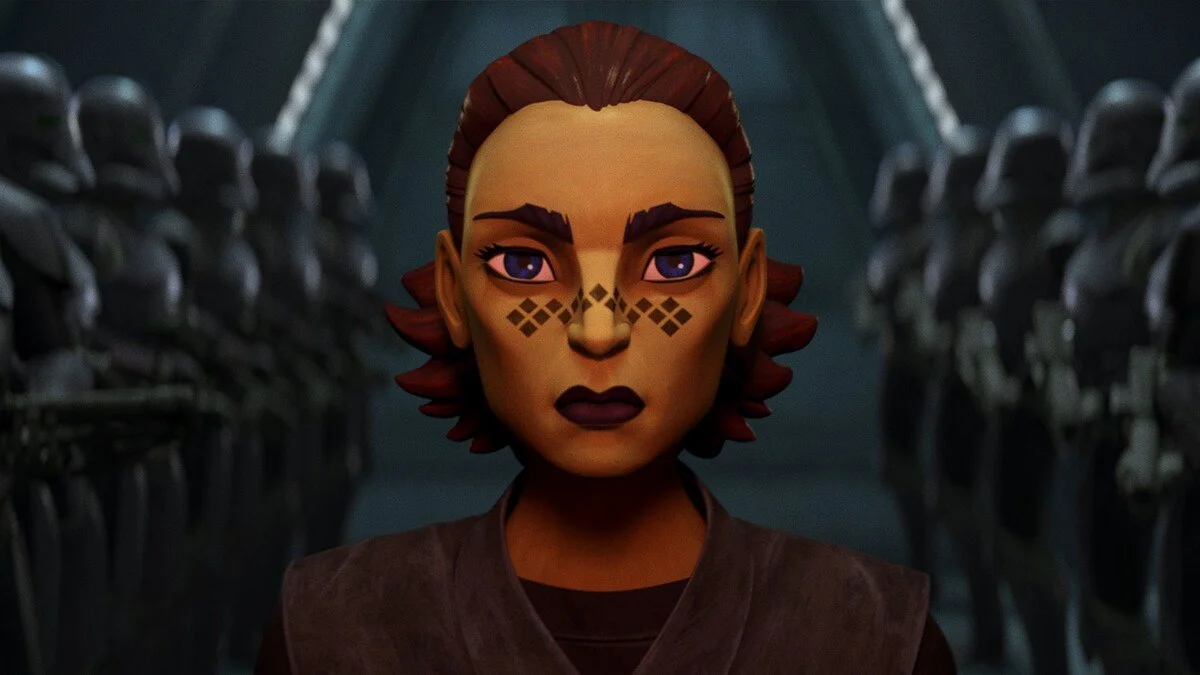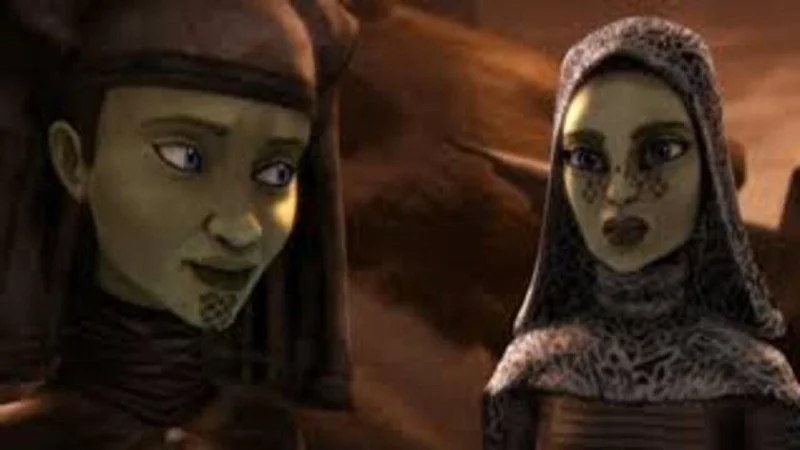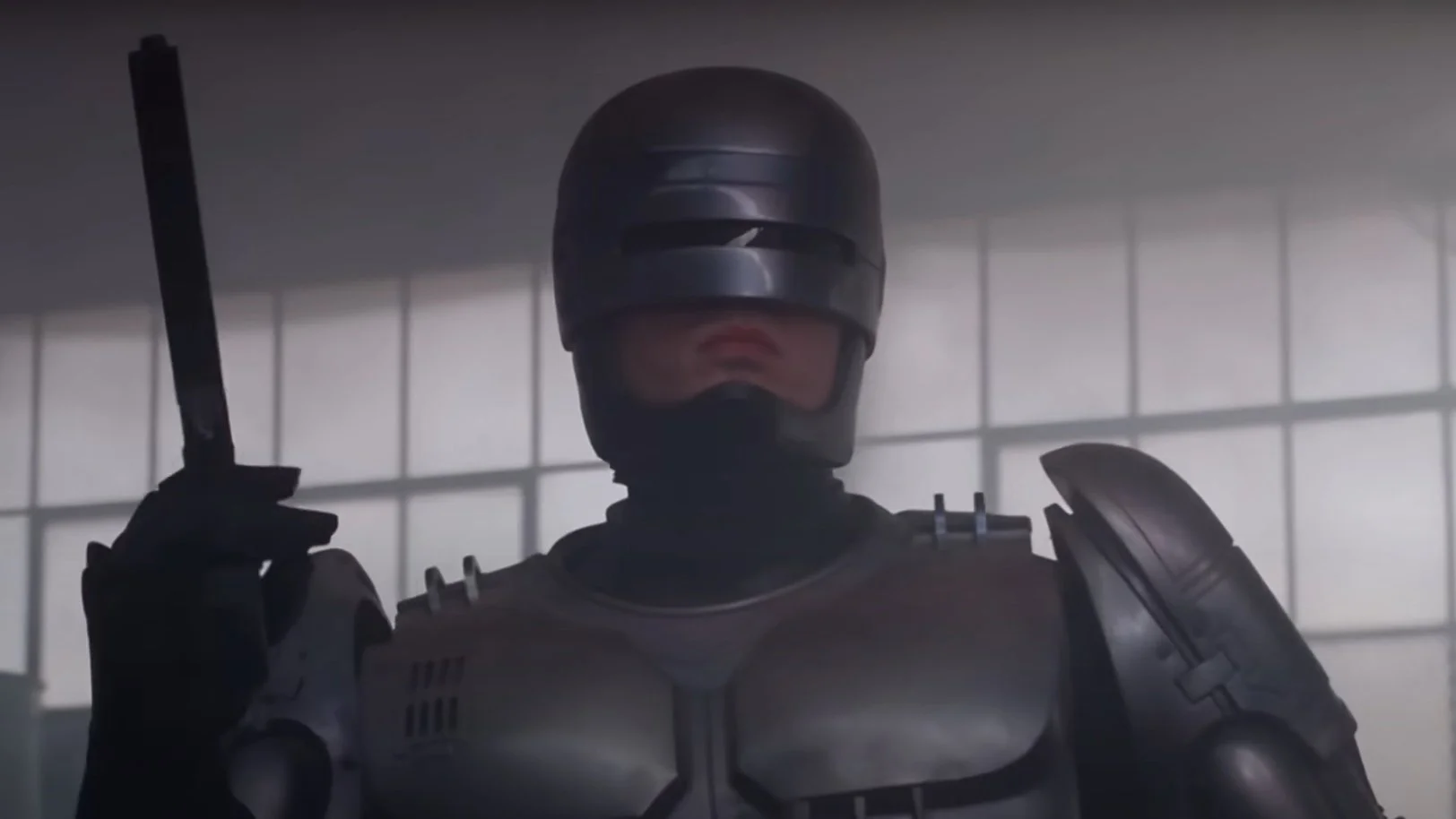Barriss Offee's Fate: Inglorious But Important
Image Source: StarWars.com
A story of misguided anger, regret, and finally, peace, which started almost a decade sooner in the hit animated television show The Clone Wars, has finally reached its conclusion in the latest Star Wars animation, Tales of the Empire. But how did we get to this point? And more importantly, why does how it ends matter so much?
The Clone Wars
Barriss Offee, though a well-known character in Star Wars Legends continuity was seemingly just a small-role character in Canon. She was first introduced during the Clone Wars’ second battle of Geonosis. Designed to be something of a foil, Barriss was reserved, meticulous and careful to series protagonist Ahsoka Tano’s outgoing, spontaneous, and reckless early personality. Barriss and her master, Luminara Unduli, were set up by all appearances to be the “perfect” Jedi, willing and accepting to give their lives while both Ahsoka and her master, Anakin Skywalker, railed against their fates.
RELATED:
Image Source: ScreenRant
Barriss would continue to show these traits in a later episode, in which she bids Ahsoka to kill her to protect herself and prevent an infestation of brain-controlling Geonosian worms from spreading across the galaxy. While this mentality of sacrifice could be construed as admirable, it also suggested a rigidity of sorts, a black-and-white line of thinking that would cause problems down the line. And indeed it does.
We don't see much of Barriss for the majority of the series until near the end of Season 5, where she is front and center during the infamous Wrong Jedi Arc. Frustrated and hurting, Barriss triggers a fatal explosion in her own home, killing several people and eventually pining the blame for the deed on her once good friend Ahsoka. When she's finally exposed and caught we see how much the war and her own fears have twisted her. Rather than the life of a healer and peacekeeper, Barriss was forced into the role of a soldier, one she was poorly suited to. At her worst, Barriss becomes a reflection of what war turns even the most noble into: someone who has been taught to hammer everything that looks the slightest bit like a nail.
Induction Into The Empire
Image Source: IGN
However, Tales of the Empire, despite its bleak and dark atmosphere and themes also provides a glimmer of light as it continues Barriss’ story. Left to languish in prison, Barriss’ story picks up in the wake of Order 66 and the genocide of the Jedi Order. Barriss is inducted into the ranks of the Inquisitorius, Force-sensitive Jedi hunters and assassins under the command of Darth Vader.
While we've gotten more insights into the brutality of the Inquisitorius, Tales truly shows how effective the breaking process is. When Barriss is once more forced to kill for her survival, it becomes clear that the Inquisitor process is a harsher, crueler extension of the same matters which planted the seeds of the dark side in the first place: War. Murder. Fear.
Each Inquisitor, we come to see, no matter how cruel or sadistic they act, are people trapped in a constant loop of survival. The life of an Inquisitor is a never-ending trauma response, desperately trying to stave off a complete collapse. Fear leads to anger. Anger leads to hate. Hate leads to suffering. To be an Inquisitor is to be a creature constantly lashing out.
But that creature is not Barriss Offee.
Barriss lashed out and regretted it ever since and in a way, this is what comes to save her later. Barriss has touched more than the dark side of the Force—she touched the darkness within. It's not a perfect system—by the end of the first episode of her arc, Barriss has fallen back into that fear response. She's accepted a mantle she feels she already deserves. She is a terrorist and traitor after all. She's a killer. Of course, she reasons, this is where she was meant to end up.
But it's not so easy to dismiss one's morals. Barriss, in her own way, is perhaps one of the most honest people in the series, even in her deceit, because while she lies to herself verbally, emotionally and physically she can't deny her Jedi upbringing and oaths. She readily admits her actions are her own. Even when she blames the Jedi for their supposed warmongering, she doesn't deny her actions. When so much of the Inquisitor and the dark side mindset relies on blaming others in order to justify one's actions, the type of clarity Barriss exhibits shifts everything.
So when it comes to slaughtering civilians, this understanding, combined with her tattered healer's oath, is what breaks Barriss. She can't justify these atrocities she's being pushed to commit. These people aren't tainted, not like the ones caught up in her rage and desperation months prior. These are the very type of people that she as a Jedi swore to protect—the type of people a Jedi is protecting.
Image Source: Collider
But she's also not strong enough to fight. She's tired of war. She can't kill. She's so tired of being a murderer. So she prioritizes her patient, pushing her Inquisitorius comrade off a mountain and reclaiming her heritage by going back and saving the person she almost doomed to a life of regret and pain.
The End
When we see Barriss years later, we find she has become what she's always set out to become: a healer. It's not a glamorous job. Her resources are few. But it's what she can do, how she changes the galaxy, one wound at a time.
This step is unbelievably important in how philosophy in Star Wars works, a philosophy we, arguably, tend to forget as a fandom. Luke puts down his lightsaber, not simply because of faith in his father, but because, as the Clone Wars and the rise of the Empire has shown, not everything can be solved by whacking people with plasma sticks. There's more than one way to fight and more than one way to climb out of the darkness.
Image Source: ScreenRant
One could argue that she hasn't done enough, that she needs to pay for her crimes, that she should have, perhaps, joined the Rebellion and lent her power to a greater cause. But alternatively, one can argue that atonement is only as effective and worthy as it is healing not only others, but the perpetrator themself. Cere Junda cuts herself from the Force for so long because she recognizes her weakness: the corrosive hate and anger within that she has yet to reconcile. Nearly defeating Darth Vader may save lives but it doesn't bring her apprentice back. It doesn't stop the pain. How much of what she could do is worth what she becomes in the process?
It's easy to proclaim that large, mighty gestures make atonement valid. But the quieter acts shouldn't go unsung. Barriss Offee shows that, revealing a different kind of strength. Rather than take lives, even the lives of Imperials, she chooses to heal. She refuses to be a soldier. In a galaxy so full of violence and pain, she does what she can to stem the tide. Anyone can take a life, but there are few we see that seek to not only preserve, but heal and nurture.
And when violence makes her way to her metaphorical shores, she maintains that philosophy. When the Fourth Sister bids her to fight, she refuses. She will not raise a weapon even in her own defense. She bobs and weaves and runs but she does not strike back. She will not kill. And though she's struck down, she does what a Jedi does and changes a life: the life of Lyn Rakish, the Fourth Sister, her mirror, who in seeking to save her life renounces her own mantle of evil, just as Barriss herself did years prior.
Would it have been awesome to see a great battle between good and evil? Perhaps. But that runs counterintuitive to who Barriss Offee is: a woman who made a terrible mistake, who wanted to help but didn't know how, who needed help and didn’t know how to seek it, and who finally found a role where she flourished, not as a bold knight on the battlefield, but as one of the unsung heroes of every reality: the one who strives to ensure those knights get to go home again. It’s not a glorious end…but it’s hers, and it’s one worth telling.
Barriss’ story is but a drop in the ocean of tales in the Star Wars galaxy. It's nowhere close to the grand adventures and larger-than-life characters we've come to know and love…but it doesn't have to be. In a galaxy of darkness, a single light is still a powerful one. One does not have to change the world to change a world.
READ NEXT:

















